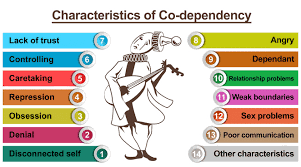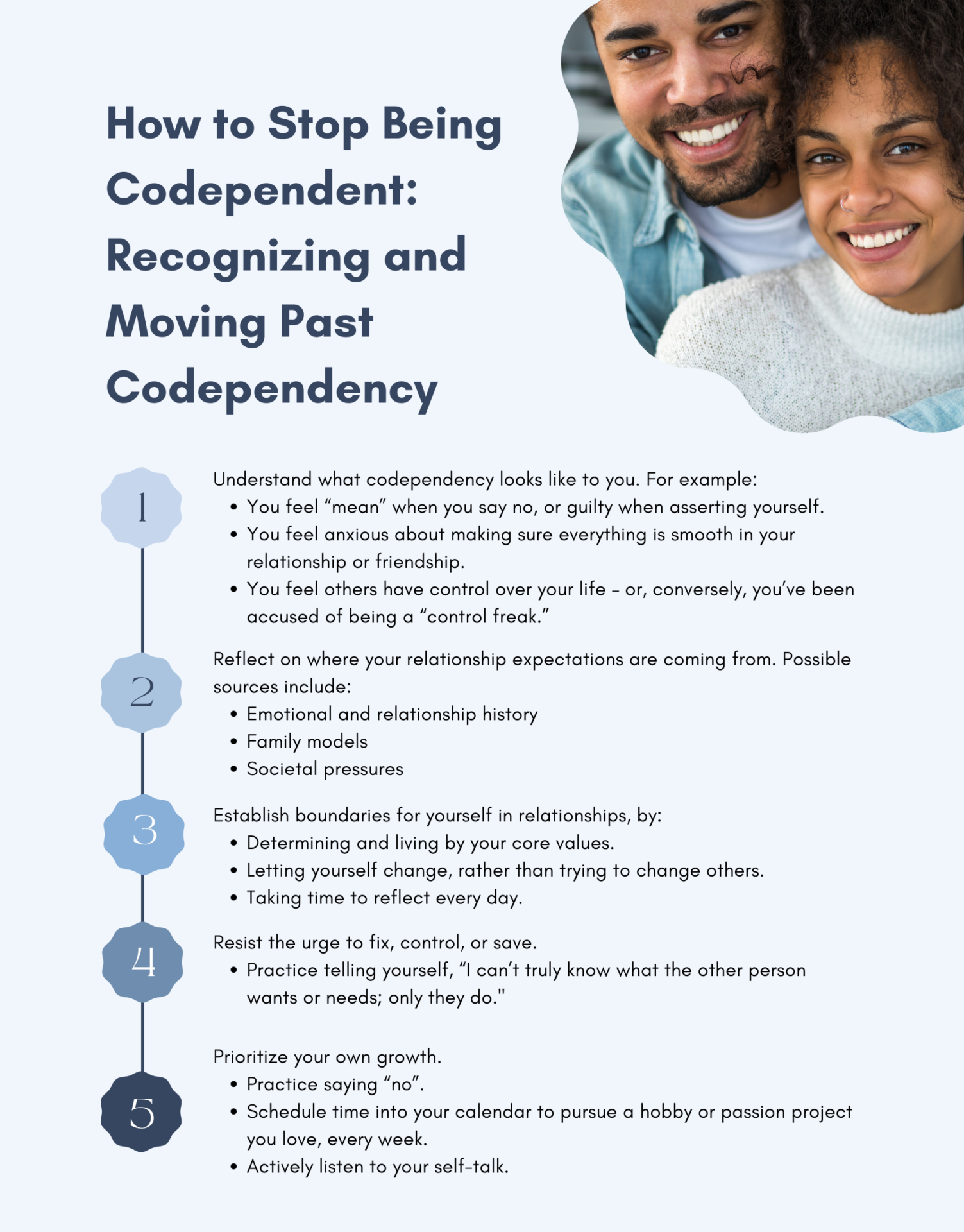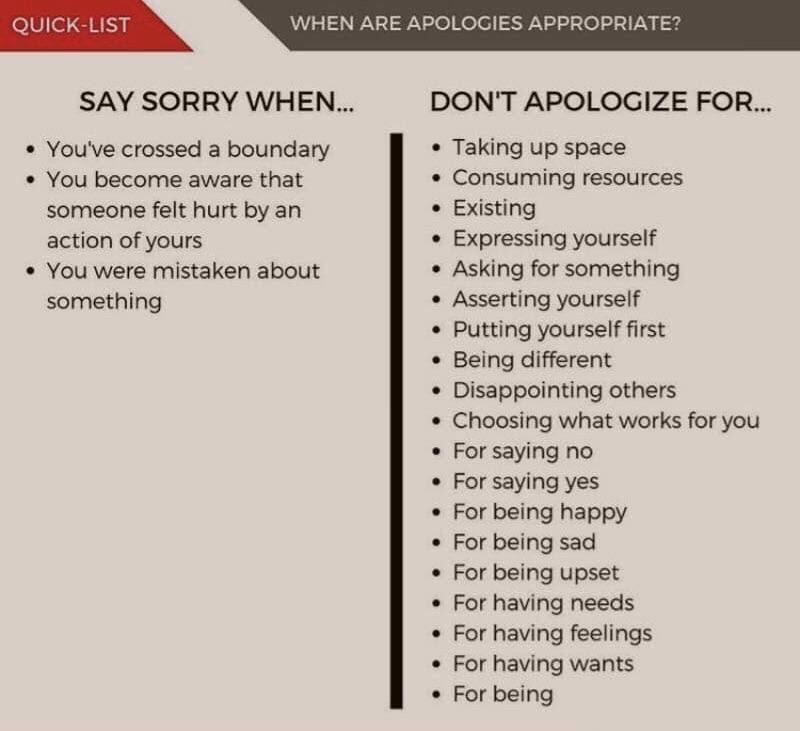Codependency is a type of relationship addiction. It is characterized by excessive reliance on other people for approval and self-esteem. Codependent people often have difficulty regulating their emotions and behavior. They may also find it difficult to maintain healthy relationships. If you are struggling with codependency, don’t worry – there is hope! In this guide, we will discuss the signs and symptoms of codependency, as well as some tips on how to overcome it.
Contents
Understanding Codependency
Codependency is a term that was first coined in the 1930s. It is defined as a psychological condition in which people develop an unhealthy dependence on others for approval and self-esteem. Codependent individuals often have difficulty regulating their emotions and behavior. They may also find it difficult to maintain healthy relationships.
Types of Codependency
There are several different types of codependency. These include:
- Emotional codependency: This type of codependency is characterized by a need for constant reassurance and approval from others. Emotionally codependent people often have difficulty expressing their own needs and wants. They may also find it difficult to set boundaries in relationships.
- Sexual codependency: This type of codependency is characterized by a need for constant sexual attention and approval from others. Sexually codependent people often have difficulty expressing their own needs and wants. They may also find it difficult to set boundaries in relationships.
- Financial codependency: This type of codependency is characterized by a need for constant financial support from others. Financially codependent people often have difficulty managing their finances. They may also find it difficult to set boundaries in relationships.
- Physical codependency: This type of codependency is characterized by a need for constant physical support from others. Physically codependent people often have difficulty taking care of themselves. They may also find it difficult to set boundaries in relationships.
- Spiritual codependency: This type of codependency is characterized by a need for constant spiritual support from others. Spiritually codependent people often have difficulty finding their sense of purpose. They may also find it difficult to set boundaries in relationships.
Symptoms of Codependency

There are several different symptoms of codependency. These include:
- Low self-esteem: Codependent People often have low self-esteem. They may feel like they are not good enough or that they do not deserve to be happy.
- People pleaser: Codependent People often go out of their way to please others. They may do things that they don’t want to do or put their own needs aside to make someone else happy.
- Difficulty setting boundaries: Codependent People often have difficulty setting boundaries in relationships. They may find it difficult to say no to others or to assert their own needs.
- Fear of abandonment: Codependent People often have a fear of abandonment. They may feel like they need to be in a relationship to feel happy and fulfilled.
Codependents often struggle with these symptoms because they do not have a healthy sense of self. Without a healthy sense of self, it can be difficult to set boundaries, express needs, and build self-esteem.
Causes and Risk Factors
There are several different causes and risk factors for codependency. These include a history of:
- Abuse: People who have been abused – either physically, emotionally, or sexually – are at a higher risk of developing codependency.
- Trauma: People who have experienced trauma – such as witnessing a traumatic event or being in a car accident – are at a higher risk of developing codependency.
- Neglect: People who were neglected – either physically, emotionally, or spiritually – are at a higher risk of developing codependency.
- Addiction: People who have struggled with addiction – either their own or a family member’s – are at a higher risk of developing codependency.
- Mental illness: People who have struggled with mental illness – either their own or a family member’s – are at a higher risk of developing codependency.
Overcoming Codependency

Codependency is often passed down from generation to generation. If you grew up in a codependent family, you may have learned that relationships are supposed to be this way. This can make it difficult to end a codependent relationship because it feels like you are betraying your family or going against what you were taught.
You May Feel Like You Need The Other Person
If you are in a codependent relationship, you may feel like you need the other person. This can be because you have low self-esteem or because you don’t have a healthy sense of self. If you don’t have a healthy sense of self, it can be difficult to imagine your life without the other person.
The Other Person May Be Reliant On You
If you are in a codependent relationship, the other person may be reliant on you. This can be because they have low self-esteem or because they don’t have a healthy sense of self. If the other person is relying on you, it can be hard to end the relationship because they may feel like they will be losing everything.
Its Implications
Codependency can have several different implications. These include:
- Health problems: Codependency can lead to health problems, both physical and mental. Codependent people often put their own needs aside to please others. This can lead to stress, anxiety, and depression.
- Relationship problems: Codependency can also lead to relationship problems. Codependent people often have difficulty setting boundaries. This can lead to conflict and resentment in relationships.
- Work problems: Codependency can also lead to work problems. Codependent people often put their own needs aside to please others. This can lead to conflict and resentment at work.
Self-help Tips

If you are struggling with codependency, there are several things you can do to overcome it. These include:
- Identify your triggers: The first step in overcoming codependency is to identify your triggers. What are the things that cause you to feel codependent? Once you know what your triggers are, you can start to work on avoiding them.
- Set boundaries: The second step in overcoming codependency is to set boundaries. Boundaries are essential in any relationship, but they are especially important in Codependency often occurs when people do not have healthy boundaries.
- Learn to love yourself: The third step in overcoming codependency is to learn to love yourself. This means accepting yourself for who you are – imperfections and all. It also means taking care of yourself – both physically and emotionally.
- Build self-esteem: The fourth step in overcoming codependency is to build self-esteem. This can be done by setting realistic goals, accepting compliments, and taking care of yourself.
Self-help Tools
Several self-help tools can help overcome codependency. For instance:
- Assertiveness training: Assertiveness training can help you learn to set boundaries and healthily express your needs.
- Books: There are many books about codependency and how to overcome it. Some of these include Codependent No More by Melody Beattie and The Language of Letting Go by Melody Beattie.
- Support groups: There are also many support groups for people who are struggling with codependency. These groups provide a safe place to share your experiences and learn from others who are going through similar challenges.
- Therapists: Therapists can also help overcome codependency. They can help you identify your triggers, set boundaries, and build self-esteem.
Talking To a Professional
If you are struggling with codependency, talking to a professional can be a helpful step in overcoming it. Since a therapist can help you understand your codependency and work on developing healthy coping skills.
Therapies
Several different therapies can be effective in treating codependency. For instance:
- Cognitive-behavioral therapy: This type of therapy helps people to identify and change negative thought patterns.
- Dialectical behavior therapy: Dialectical behavior therapy can help you learn to cope with difficult emotions healthily.
- Interpersonal therapy: This type of therapy helps people to improve communication and relationships skills.
- Family therapy: This type of therapy can help family members to understand and support each other.
Skills You Gain
When you overcome codependency through therapy, you gain many skills. For instance, these include the ability to:
- Set boundaries: When you overcome codependency, you learn how to set boundaries. This means that you can start to assert your needs healthily.
- Love yourself: When you overcome codependency, you learn to love yourself. This means that you can start to take care of yourself – both physically and emotionally.
- Build self-esteem: When you overcome codependency, you learn how to build self-esteem. This means that you can start to accept compliments and set realistic goals.
- Communicate effectively: When you overcome codependency, you learn how to communicate effectively. This means that you can start to express your needs healthily.
- Develop healthy relationships: When you overcome codependency, you learn how to develop healthy relationships. This means that you can start to connect with others healthily.
Conclusion
In conclusion, overcoming codependency is possible. It takes effort, commitment, and willingness to change. But it is worth it. Because when you free yourself from the chains of codependency, you open yourself up to a world of possibilities.
If you think you might be codependent, talk to a professional. They can help you understand what codependency is and how to overcome it. You can do it! Take the first step today.
A Word From Therapy Mantra
Your mental health — Your psychological, emotional, and social well-being — has an impact on every aspect of your life. Positive mental health essentially allows you to effectively deal with life’s everyday challenges.
At TherapyMantra, we have a team of therapists who provide affordable online therapy to assist you with issues such as depression, anxiety, stress, workplace Issues, addiction, relationship, OCD, LGBTQ, and PTSD. You can book a free therapy or download our free Android or iOS app.


